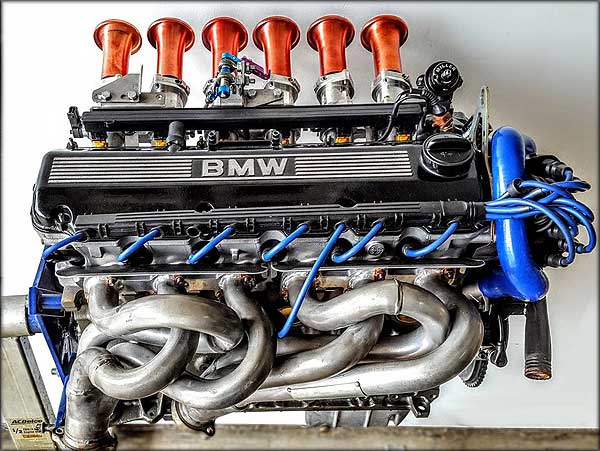Introducing the Intricacies of Next-Generation Power Units: a Deep Study Advanced Engine Layouts and Advancements
As we stand on the precipice of a brand-new age in transport, the details of next-generation engine designs bid us to check out the sophisticated technologies and innovations that guarantee to redefine the driving experience. Digging much deeper right into the realms of emission control, smart engine monitoring systems, and the perspective of power system advancement, we find ourselves on the cusp of an improvement that promises to improve the landscape of flexibility as we understand it.
Development of Engine Materials

The change towards advanced engine products has also allowed engineers to make engines with higher power outputs while keeping fuel effectiveness criteria. The use of light-weight materials decreases the total weight of the engine, leading to boosted fuel economy and lower discharges. Additionally, advancements in materials technology have actually enabled for better thermal administration within engines, leading to enhanced dependability and long life.
Turbocharging and Supercharging Technologies
Exactly How do Turbocharging and Supercharging Technologies revolutionize engine efficiency and performance in modern vehicles? Turbocharging and turbo charging are modern technologies that considerably boost engine performance by raising the quantity of air intake right into the burning chamber. Turbocharging attains this by making use of a turbine driven by exhaust gases to pressurize the consumption air, while turbo charging makes use of a belt- or chain-driven compressor to achieve the same effect.
These innovations allow smaller sized, a lot more fuel-efficient engines to generate power comparable to bigger ones, called downsizing. Forcibly even more air right into the cyndrical tubes, supercharging and turbocharging improve burning effectiveness, resulting in increased horsepower and torque outcome without a considerable increase in engine dimension. This leads to better acceleration, towing capability, and total driving efficiency.
In addition, turbocharging and turbo charging contribute to improved fuel effectiveness by allowing the use of smaller engines that take in much less gas under regular driving problems - bmw engine. This mix of boosted performance and performance has actually made turbocharging and turbo charging indispensable parts of many modern engine layouts
Discharge Control and Environmental Effect
With enhancing worldwide issues pertaining to air quality and environmental sustainability, the application of discharge control modern technologies in vehicles plays an important function in minimizing hazardous toxins launched into the atmosphere. Modern cars are outfitted with sophisticated emission control systems that help minimize the environmental effect of automobile procedures. Catalytic why not try here converters, for instance, are designed to convert harmful gases such as carbon monoxide gas, nitrogen oxides, and hydrocarbons look at here right into much less damaging materials like co2 and water vapor.
Furthermore, improvements in engine modern technology, such as the integration of exhaust gas recirculation systems and careful catalytic reduction, have considerably added to reducing exhausts. These innovations operate in tandem to optimize burning efficiency and lessen the release of damaging toxins into the air. Furthermore, the advancement of hybrid and electric cars represents an essential action in the direction of lowering the general environmental footprint of the transport sector.
Intelligent Engine Management Solution

Additionally, these systems enable lorries to meet rigid emissions standards without endangering performance, providing an extra eco-friendly driving experience. The combination of expert system and artificial intelligence abilities in engine management systems proceeds to press the limits of why not check here what is feasible, resulting in further renovations in effectiveness, integrity, and overall automobile efficiency. bmw engine. As automobile technology advancements, intelligent engine monitoring systems will certainly play a vital role in forming the future of transportation in the direction of a more reliable and lasting instructions
Future Trends in Power Unit Advancement
As smart engine management systems pave the way for enhanced control and optimization in modern vehicles, future fads in power system advancement are poised to redefine the landscape of automobile propulsion innovations. These alternate power sources offer improved performance and efficiency while lining up with rigid environmental policies.
Another significant pattern is the assimilation of sophisticated materials and making techniques. Lightweight materials such as carbon fiber and light weight aluminum are being made use of to minimize overall vehicle weight, improving gas efficiency and efficiency. Furthermore, developments in 3D printing and additive production are enabling the production of complicated engine parts with higher precision and sturdiness.
Additionally, artificial intelligence and artificial intelligence are playing a vital role in optimizing power system efficiency. These technologies enable real-time monitoring and adaptive control, bring about more reliable and trusted power distribution. Generally, future trends in power unit development are geared in the direction of sustainability, efficiency, and effectiveness, driving the automobile market towards a new era of propulsion modern technologies.

Final Thought
In conclusion, the innovations in engine products, turbocharging, exhaust control, and intelligent monitoring systems have actually led the way for next-generation power systems. These technologies have not just enhanced performance and effectiveness but additionally minimized environmental effect. As innovation continues to advance, future patterns in power device development are most likely to concentrate on additional boosting sustainability and enhancing power outcome. The elaborate designs and developments in contemporary engines display the continuous evolution of auto modern technology.
Discovering the progressive improvements in engine materials has actually been critical in enhancing the performance and effectiveness of modern-day engines. Over the years, the development of engine products has played a vital function in pressing the borders of what engines can accomplish.The shift towards advanced engine materials has likewise made it possible for designers to develop engines with greater power outputs while keeping gas performance criteria.The implementation of smart engine monitoring systems in modern vehicles has actually revolutionized the means engines are regulated and maximized for efficiency and effectiveness. By collecting information in real-time and analyzing it with sophisticated formulas, smart engine administration systems can adapt to driving designs, ecological variables, and engine wellness to make best use of power outcome while decreasing gas consumption and emissions.